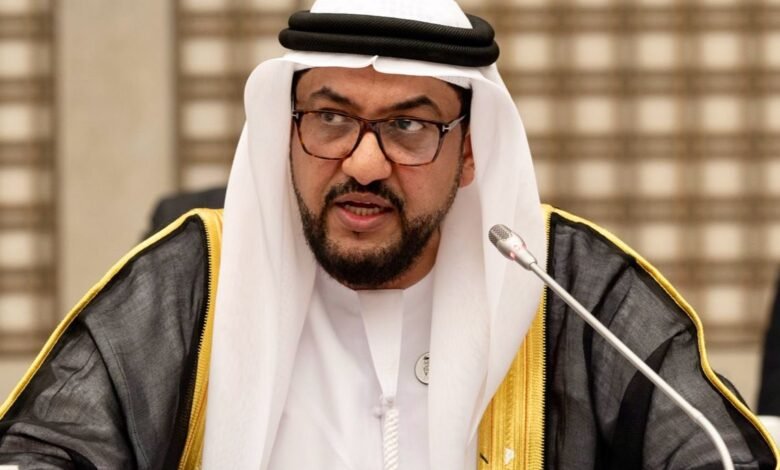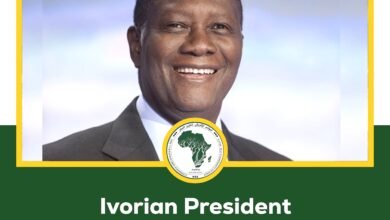
Sheikh Mahfoudh Bin Bayyah, Secretary General of the African Conference for peace said in an exclusive interview with Karima Rhanem, Senior Editor (North Africa), The New Africa Magazine that the African Peace Conference has provided a unique platform for dialogue and reconciliation, strengthening commitments to sustainable peace, particularly in vulnerable regions like the Sahel. The conference has made notable progress in deconstructing extremist narratives and promoting an Islam of peace and coexistence. He added that Mauritania’s strategic role in hosting these conferences is vital due to its geographical position and historical function as a bridge between sub-Saharan Africa and the Maghreb.
The country has long been a center of Islamic scholarship, particularly in Maliki jurisprudence and Sufi traditions, making it well-placed to counter extremist ideologies. He commanded the blessed initiative of His Majesty King Mohammed VI of Morocco to create the Mohammed VI Foundation of African Oulema in 2015, noting that the African Peace Conference is part of this blessed wake, enabling Mauritania since 2020 to continue to play this role of a unique link, that it has always played between North Africa and sub-Saharan Africa.
Sheikh Bin Bayyah added that these initiatives require continued efforts to consolidate these gains, especially in an insecure environment. He reiterated the crucial role of theologians and religious figures in dismantling extremist discourse by providing scholarly interpretations that counteract distorted narratives. Religious leaders complement state-led security responses by working to influence hearts and minds, reinforcing the fundamental message of Islam as a religion of peace.
As to the role of women religious councilors, Sheikh Bin Bayyah, said that the empowerment of Murshidate women is a crucial aspect of promoting moderate Islam and interfaith dialogue. Inspired by Morocco’s pioneering integration of female religious guides, Mauritania aims to strengthen their training and visibility. These women play a key role in religious mentoring and peacebuilding, challenging stereotypes and fostering greater inclusiveness in religious discourse. Expanding their influence will be essential in promoting tolerance and diversity across the region.

The 5th edition of the African Peace Conference concluded with several concrete follow up measures, what is your assessment of the 5 editions?
The five editions of the African Peace Conference have created a unique space for dialogue and reconciliation, bringing together religious and political leaders and civil society actors. It is a unique continental event, benefiting from the constant support of the Mauritanian government and the United Arab Emirates. The conference also enjoys a strong presence of youth and women through dedicated special events to ensure greater inclusion in peace talks. Each of these editions has strengthened our commitment to promoting sustainable peace in Africa, especially in vulnerable regions like the Sahel. We have seen significant progress in deconstructing extremist narratives and promoting true Islam, an Islam of peace and reconciliation, which has always enabled the economic and cultural development of its civilization in a context of peaceful coexistence between the various faiths. However, the challenges remain huge, and we must continue to work together to consolidate these gains.

What is the importance of Mauritania’s strategic choice to host these five editions, taking into account that peace and security in the Sahel region remain elusive and worrying for the international community?
Mauritania is a pivotal country in the Sahel region, both in terms of its geographical position and its historical role as a bridge between sub-Saharan Africa and the Maghreb. Hosting these editions in Nouakchott highlights the importance of the region in the fight against violent extremism and strengthens local efforts for peace. In addition, Mauritania has maintained over the centuries the tradition of a scholarly Sunni Islam with many scholars who debate on subtle questions related to Maliki jurisprudence but also who produce this teaching of the soul, of the heart, which is undoubtedly lacking in our time. The awareness of this tremendous circulation, which concerns the whole of the Maghreb and Africa, that led the blessed initiative of His Majesty King Mohammed VI of Morocco to create the Mohammed VI Foundation of African Oulema in 2015. The African Peace Conference is part of this blessed wake and has enabled Mauritania since 2020 to continue to play this role of a unique link, that it has always played between North Africa and sub-Saharan Africa.
How do you see Mauritania’s role in countering violent extremism and promoting the culture of peace, mainly in the Sahel?
Mauritania plays a crucial role in countering violent extremism through its balanced approach, combining security measures and the active promotion of a moderate Islam. The country has been able to mobilize its Oulemas and religious institutions to counter radical discourse with great success, isolating extremists whose discourses are systematically rejected by scholars, imams, authorities, and therefore ultimately by the population. In addition, Mauritania has shown a strong commitment to dialogue and reconciliation, which are essential elements for achieving lasting peace in the Sahel.
We have noted a strong presence of imams and the councils of Oulemas and Fatwa in the conference. What role do theologists and religious figures play in the deconstruction of religious discourse, mainly on which extremists rely?
Scholars, jurisconsults (Fuqaha) and more generally religious figures have a central role in the deconstruction of extremist discourses. They bring a detailed and scientific knowledge to the fight against radicalization by showing that the extremists’ interpretations are distortions of sacred texts. Obviously, extremists are not always listening to these words of wisdom and these moderate readings of the Qur’an and the Sunnah. Indeed, they sometimes pursue political or material quests that justify all possible instrumentalizations. But we must continue this work, if not at least to remind the world and ourselves of the essential message of our religion, which is that of peace. The security response is sometimes essential, but that is the role of states. In our case, we will always work on hearts and the conscientiousness of people.

Do you intend to strengthen the role of Murshidate women in the promotion of moderate Islam and inter-religious dialogue based on the principles of tolerance and diversity?
Absolutely. Murshidate women have a crucial role to play in promoting true Islam and interreligious dialogue. Their presence and commitment help to break stereotypes and show the truth of our religion, which is a religion of peace and inclusiveness. We must strengthen their training and visibility so that they can fully play their role in society and participate actively in peacebuilding. We can draw inspiration from the visionary impulse of His Majesty King Mohammed VI who made it possible in 2005 to integrate the Murchidates into the religious landscape. This innovative reform allowed these women to play an essential role in mentoring and raising religious awareness, in the same way as their male counterparts. We aim to continue this work by relying on our unique anchoring in the countries of the sub-region.





